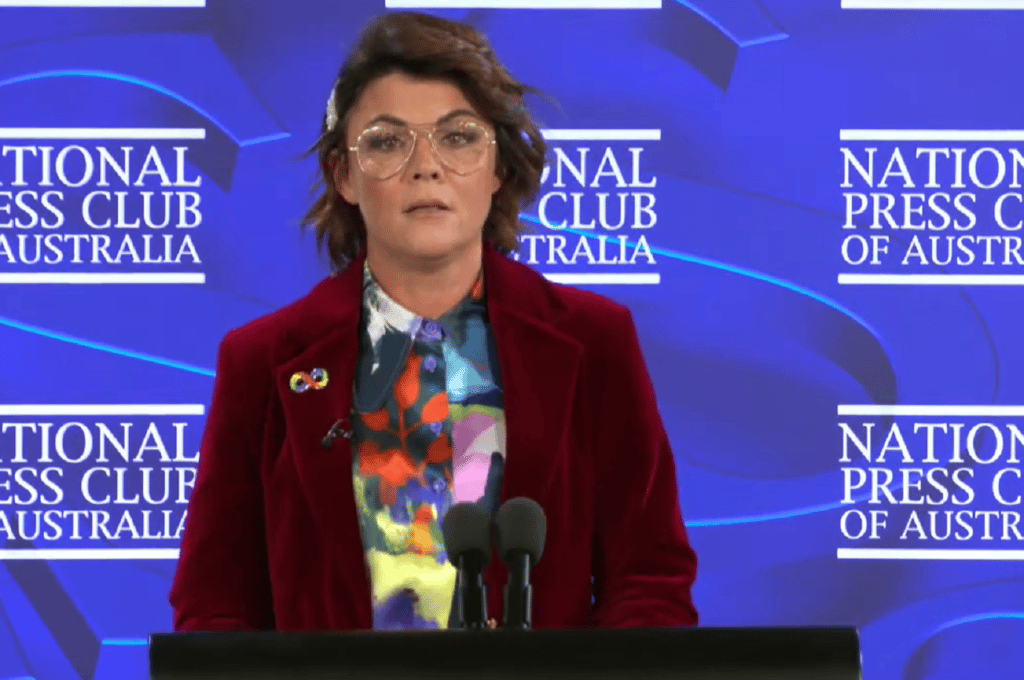Comedian and media presenter Em Rusciano has opened up about her experience with attention deficit hyperactivity disorder (ADHD), saying being diagnosed as an adult triggered “enormous grief”.
Speaking at the National Press Club, Rusciano also called for ADHD to be included on the list of primary conditions supported by the National Disability Insurance Scheme (NDIS).
“I felt deep sadness for that precocious, curious and chaotic 10-year-old girl who desperately wanted to get things right,” Rusciano said, referring to how she felt when she received her diagnosis at age 42.
“Some experts believe that by the age of 10, kids with ADHD will have absorbed 20,000 more negative messages about themselves, than their neurotypical peers.”
Rusciano expanded on her experiences at school as a child, and why she thinks she has suffered from low self-esteem throughout her life.
“Now I know that I was really good at hard things, but at the time all my teachers focused on was the fact I was crap at the basic stuff. It was a disconnect that they seemed to put down to me being slack, lazy, or that I just didn’t like that particular subject,” she said.
“As a result, I grew up with a really messed up internal compass of achievement and very low self-esteem. Until recently, I actually didn’t know how to celebrate any wins that I had because I always thought if I achieved anything it must be pretty easy and therefore not really worth acknowledging.
“Girls and people assigned female at birth are chronically underdiagnosed with ADHD and certainly when I was at school, it was only the boys who would get picked up and diagnosed.”
Rusciano said she had always associated ADHD with “hyperactive 10-year-old boys who should avoid red cordial” and “certainly not 42-year-old anxiety-ridden adult women who are chronically exhausted all of the time”.
Rusciano called for a cultural and attitudinal shift within the wider community when it comes the neurodivergent community.
“The message should not be that the neurodivergent community are lacking or less than, but that we are different and equally worthy,” she said.
“Specifically in relation to ADHD, the judgement from neurotypical people needs to just get in the bin.”
“When we are not forced to try and fit into a framework and societal structure that was built for people who aren’t like us, we can be pretty impressive. But at the moment, in most cases, when we senc a kid with ADHD to school, it’s like sending them to play baseball with a golf club.”
Rusciano also talked about her son, who was recently diagnosed with autism.
“I can’t go back and advocate for 10-year-old Em. And, most importantly, I won’t always be there to advocate for my son,” she said.
“I won’t always be able to be there to step in and explain why he goes up and roars loudly like a dinosaur in people’s faces.
“The reason that I eventually agreed to give you this speech was because I wanted to make sure that all of you here today and everyone watching from wherever you are … that you get it, that more people get it.
“Don’t treat them like there’s something wrong with them. Be bigger than that, be better than that, be kinder than that and please roar back.”


